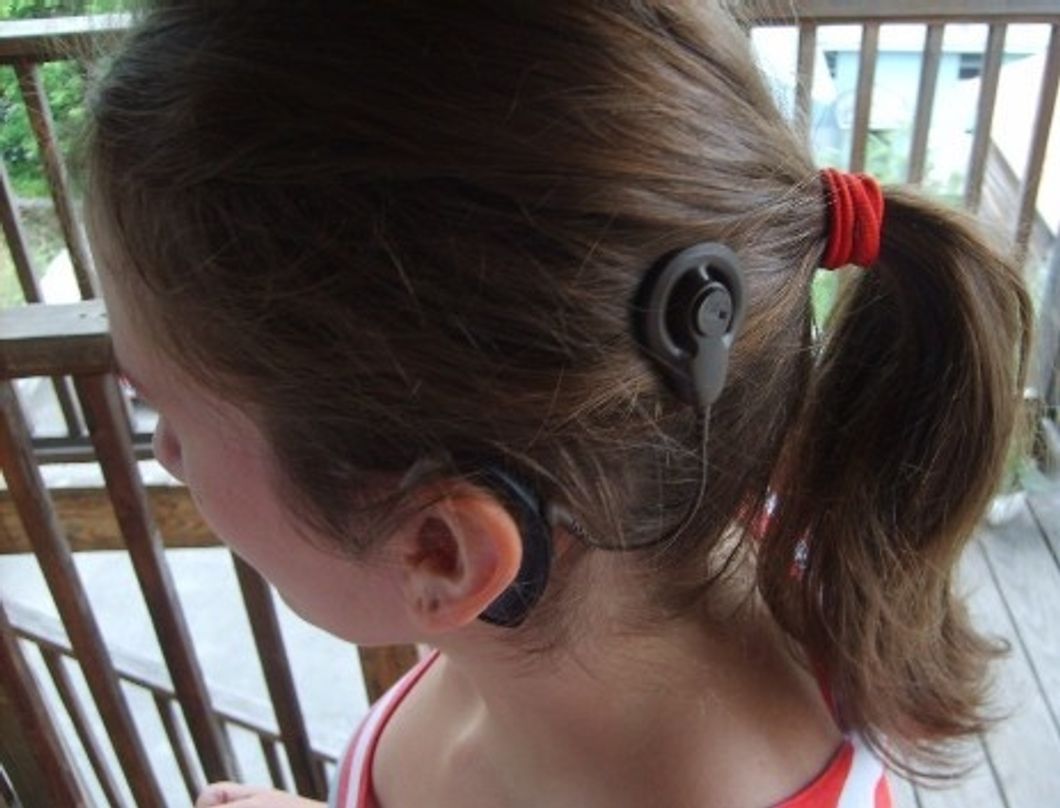Subtitles are one of the simplest ways to make media more accessible to those who are deaf or hard of hearing, to those who have auditory processing problems, people who have trouble focusing, and more. They make watching and enjoying different media much easier for many people, and they are available in almost all forms of digital media.
First, let's discuss television. We all know those commercials that say "Closed Captioning provided by...", followed by a list of ads for different companies, all of which have paid for airtime in one way or another with funds being used for captioning.
Captions aren't always the easiest to find, but somewhere in the menu of any modern t.v., they're available, and every channel utilizes them, even for live shows. Captions aren't perfect, and they lag behind a bit frequently, but they're often quite accurate and a step towards accessibility.
Even if you don't personally use them, it's always good to know how to turn them on in case one of your friends may need them in the future, and if you can, contact your local stations to see how to donate to keep their captioning systems up to date and working well.
Captioning isn't exclusive to just television, though. YouTube introduced its own captioning options about a year ago, and while the auto-generated ones may be absolutely laughable at times, creators can write up accurate captions for their videos themselves.
Many creators take the time to do this, if not at first, then shortly after upload, so they can keep their channel and content as accessible as possible. If you are a creator, especially one who already scripts out their videos, I encourage you to start also typing up captions for your viewers' sake.
Beyond this, all streaming services and all DVDs/Blu-Ray/Digital/etc releases for movies have subtitles programmed, typically in multiple languages, and the English captions for movies and shows in English even frequently have descriptions for the sounds being made in the movies and shows.
If you're anything like me, you probably put shows on in the background while multitasking or you have to watch them quietly because of a sleeping roommate, both of which are situations where subtitles come in handy for the average person.
Leaving them on as default in all situations will make anything you watch more accessible to anyone who might need them in any setting instead of just yourself in these specific scenarios.
Captions are also sometimes an option for certain movie theaters, but not nearly as well fleshed-out as they should be. Beyond the occasional movie musical sing-along showing, there really aren't any subtitled movies shown. There are, at least, devices with the captions on their screens that can be used by those who need them for many, but not all, movies at participating theaters.
While this is a step towards accessibility, the number of devices are limited at theaters that do carry them, and not always available for every movie. If the devices are the way theaters want to go, then every theater needs to participate and make sure they have a plethora of them, all programmed for every movie being shown.
However, many theaters will show movies with subtitles if they're in a language other than English, so I think they should do the same for films in English, it's likely more cost effective than buying and reprogramming many little screens, and it's certainly more accessible to the general public.
Many people leave a theater wondering what was said during a certain quiet scene or trying to figure out a punchline they missed during a high-intensity scene, subtitling films would help these people as well as those with disabilities. If you want to help further the fight for accessibility, I suggest getting in contact with your local movie theaters and suggesting they implement subtitles, or at the very least they work on the availability of captioning devices.
I understand that for all subtitles and captioning do for some, they also can provide a distraction for others and may even take away from the viewing experience for them. If you are one of these people, there's no pressure to keep them around in every aspect of your life, but you can still help those who do need them.
Maybe you don't want every movie you watch in theaters to have subtitles, you could suggest that if your theater does have subtitled showings, they also have options for showings without subtitles. You could also still try to donate to local television stations to help them provide closed captioning services.
Subtitles and captioning do good for so many people, so I encourage everyone to start normalizing them even more. I encourage everyone to get involved in their communities and in making them more commonplace and more widely available. I encourage everyone to do what they can to focus on adding accessibility to the media they create.
Most of all, I encourage everyone to spread awareness and do their part to help others in their communities, to take steps towards changing the culture as a whole, even just a little bit, towards making inclusion and accommodations more frequently thought about.

















